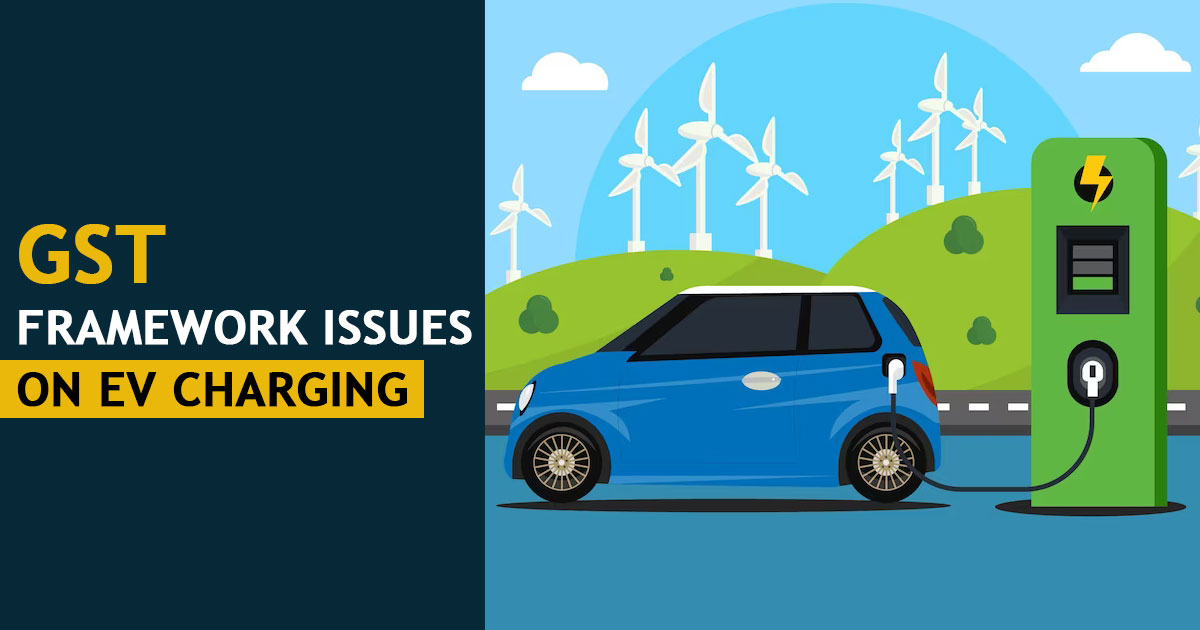
The electric vehicle (EV) industry is expected to experience significant growth, potentially reaching a value of $150 billion by 2030. In light of this, it is crucial to examine the applicability of the Goods and Services Tax (GST) to a crucial aspect of the EV ecosystem—the charging infrastructure.
Current Framework As Per GST Laws
To assess the impact of GST, it is important to understand the nature of the ‘supply’ involved in the question. These stations serve as infrastructure where users can access charging modules, connect their vehicles’ operating system to the modules, obtain electricity for charging their vehicles, and utilise it for vehicle operation in exchange for a payment to the charging station.
The first question is whether the activities and facilities provided by an EV charging station can be classified as a supply of ‘goods’ or a supply of ‘services’ under GST. It is well-established that electricity itself is considered ‘goods’ based on various Supreme Court judgments.
Moreover, if categorised as the supply of ‘goods,’ can it be argued that EV charging stations primarily engage in the ‘supply of electricity’? If this is the case, such supplies by charging stations would be exempt from GST, benefiting from a general exemption on the supply of electricity.
However, a GST exemption may not necessarily be ideal since it would render EV charging stations ineligible to claim input GST credit for the expenses incurred in setting up and maintaining the infrastructure. This outcome may be suboptimal for industry players.
On the contrary, if the activities of an EV charging station are classified as a ‘supply of services,’ they would be subject to a GST rate of 18% on EV charging. Nevertheless, charging stations would be able to credit/set off the input-side GST costs against the output GST. In this scenario, the ultimate cost to users or consumers may slightly increase.
Considering these circumstances, it is important to take into account the following developments:
- Ministry of Power Clarification Illuminating the Nexus with GST
In 2018, the Ministry of Power notified, making it clear that insofar as EV charging stations are concerned do not engage in the sale of electricity.
Although this clarification specifically pertained to whether charging stations need to obtain a licence under electricity regulatory laws, its applicability to GST laws should not be ruled out.
- Recent Judgement in the Case of P. in. W. (C-282 / 22) by the European Union (EU):
The recent judgement in the case of P. in. W. (C-282 / 22) by the European Union (EU) has highlighted the similarities between India’s Goods and Services Tax (GST) laws and the EU’s Value Added Tax (VAT) laws. Many fundamental concepts in India’s GST laws have been inspired by or are comparable to the EU VAT law. While no judgments on this matter have been found in India, the EU’s European Court of Justice (ECJ) recently addressed the question concerning EU VAT.
According to the ECJ, the transaction is that of the supply of ‘goods,’ specifically electricity. This classification is based on the fact that the primary function of these stations is to provide electricity for vehicle propulsion, while other services offered are ancillary in nature.
Reference to this judgement also cannot be ruled out given the lack of clarity in India.
Read Also: GST Impact on Cars and Spare Parts Industry in India
Clearly, there are compelling arguments on both sides of this debate.
The Final Verdict
In the absence of any proper clarification from the Indian government or the Council, the applicability of GST to EV charging stations will be open to interpretation, potentially leading to unnecessary investigations and litigation. Such uncertainties can hinder the growth of the EV sector in the long run.
Due to the sector’s strategic importance and potential, it is crucial to establish tax certainty. To achieve this, it is necessary to provide clarity on the GST position as soon as possible. Additionally, there should be provisions for amnesty or regularisation of the varying tax positions that may have been adopted by EV charging infrastructure players so far.









